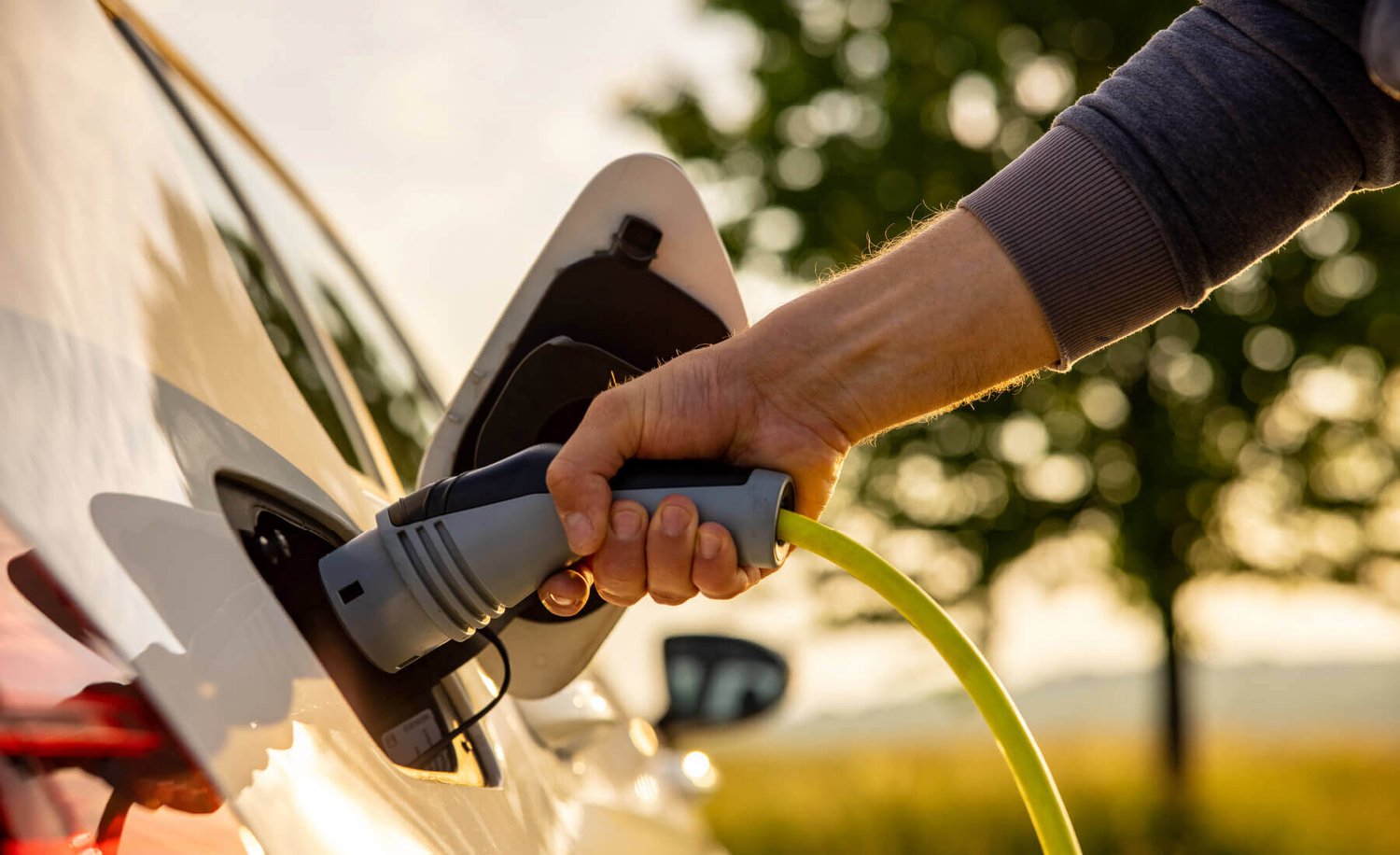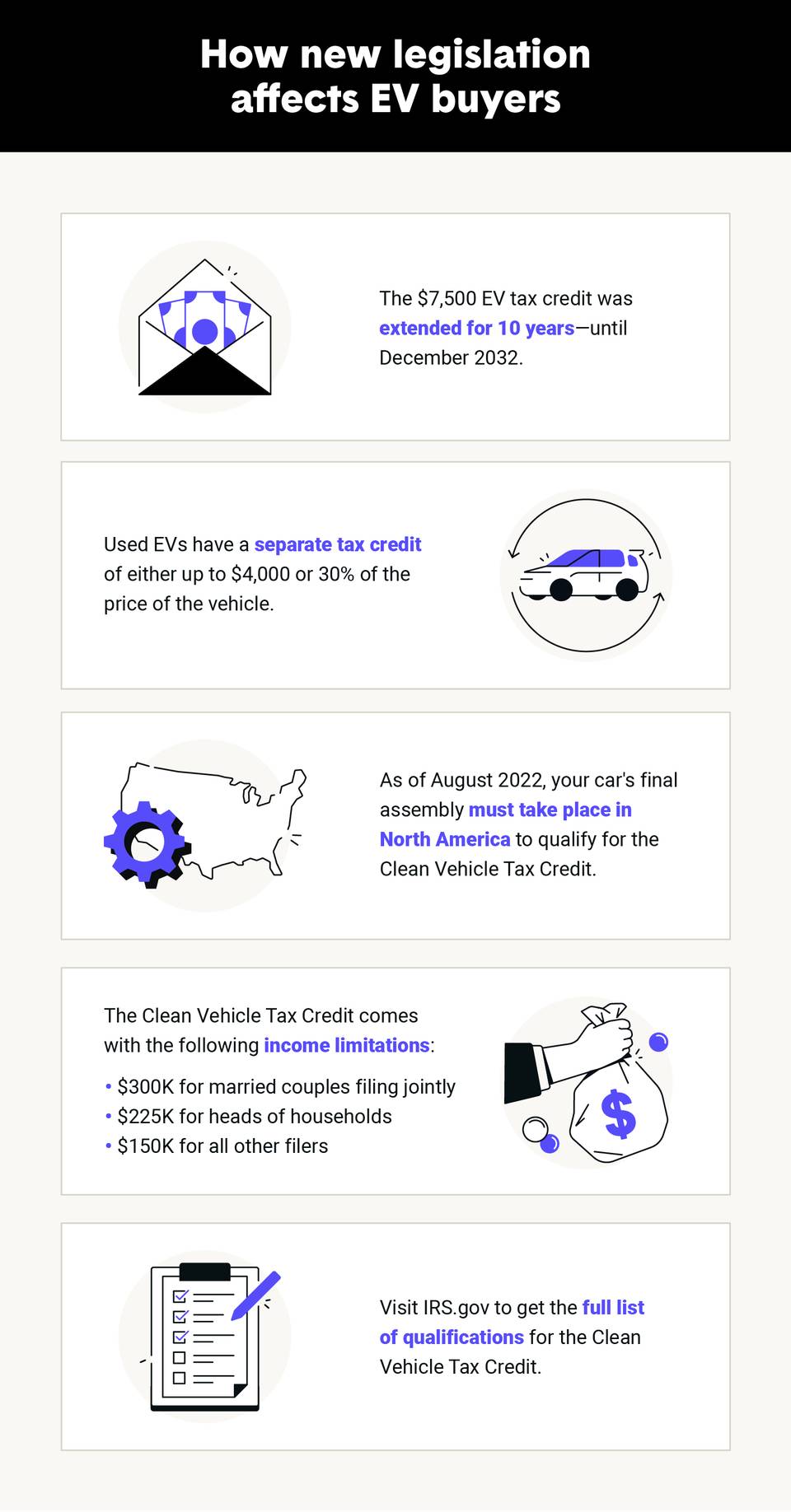There’s more conversation around electric cars than ever before. With over 1.5 million electric vehicles (EVs) on the road today, consumers are becoming increasingly excited about the ever-growing options for eco-friendly cars.1
There has been a lot of conversation circulating around electric vehicles after California introduced a state law banning the sale of new gas cars after 2035. This law is an effort to fight climate change and reduce the demand for fossil fuels. This ban will affect new car consumers and car manufacturers in the state.2
On a federal level, the Inflation Reduction Act of 2022 came with new guidelines for who could qualify for the Clean Vehicle Tax Credit. The U.S. government is offering incentives for those who purchase electric vehicles and has been for some time. The new legislation includes new guidelines for those who qualify for the credit, such as new income limitations and assembly location requirements (final assembly must take place in North America to qualify).3, 4
There are also new guidelines for those who purchase a used electric vehicle.5










